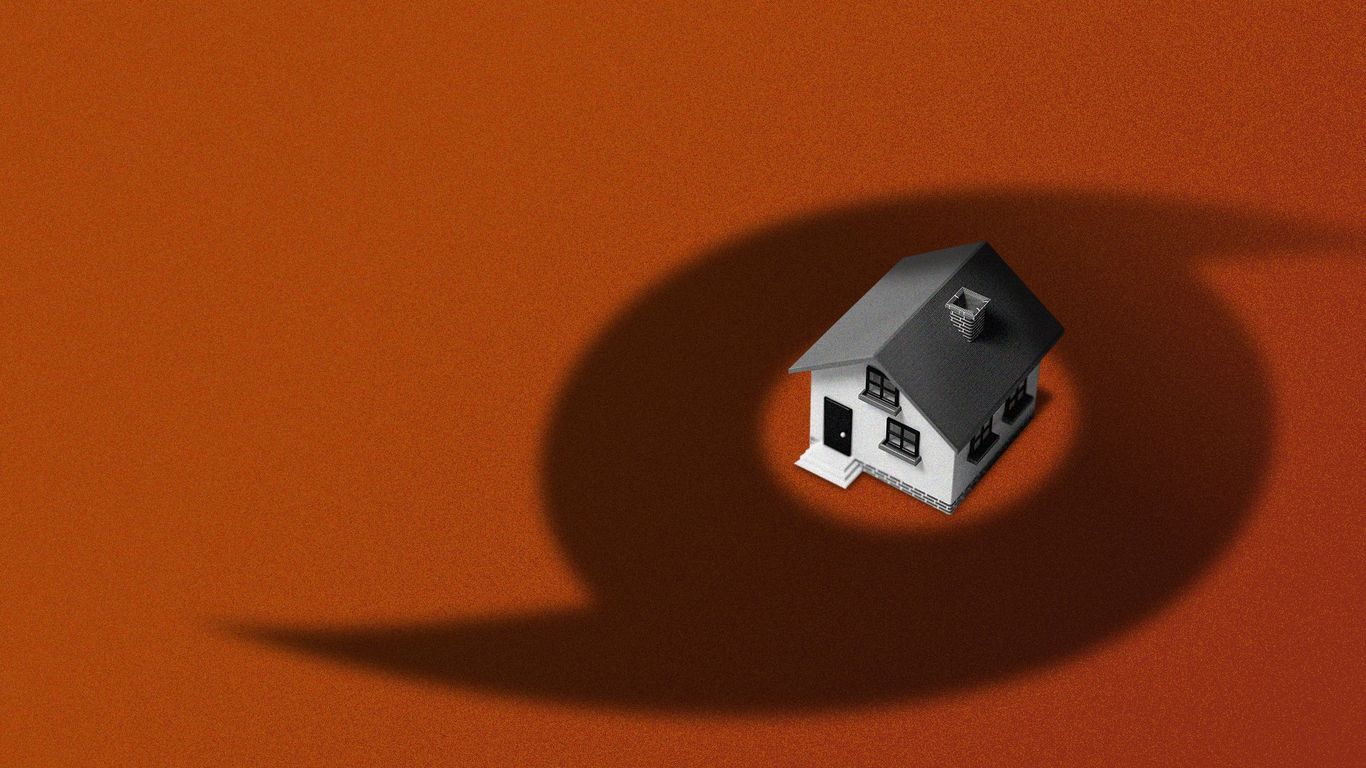The Atlantic hurricane season to date has been unusually quiet, with not a single named storm since July 2, a feat that last occurred in 1982. However, our luck is likely to run out soon, scientists tell Axios.
Why it matters: Nature’s strongest storms typically are the most costly weather-related disasters in a given year.
- They are becoming more damaging due to human-driven climate change, which is causing tropical storms and hurricanes to grow more intense, roam further north than they used to and dump heavier rainfall.
The intrigue: The forecasts for the 2022 Atlantic hurricane season have been unanimous, with everyone from the federal government to university forecasting groups calling for an above average or much above average season.
- “I’m a little surprised at the lack of activity to this point,” said Matthew Rosencrans, lead seasonal hurricane forecaster for the National Oceanic and Atmospheric Administration (NOAA).
- He said the quiet to this point is inconsistent with his forecast, but that the bulk of tropical storms and hurricanes typically form from late August through October.
- “The interesting thing is that Aug. 20 and later during the last 70 years, represents 75% of all tropical cyclone activity across the Atlantic,” he said, noting that the storm numbers NOAA has forecast are still achievable.
Zoom in: A La Niña event in the tropical Pacific Ocean, which typically lessens upper level winds across the Atlantic, argues for an unusually active hurricane season.
- However, the Atlantic is behaving as if it does not recognize the La Niña exists. There has been persistent above average wind shear across the Caribbean, tearing apart nascent storms that try to get going.
- In addition, across the so-called “main development region” of the Atlantic, there has been an abundance of dry air at the mid-levels of the atmosphere. This, too, discourages tropical cyclone development.
- According to Phil Klotzbach, a researcher at Colorado State University and seasonal hurricane forecaster, there are indications that both of these obstacles may start to move out of the way during the next couple of weeks.
Context: The lack of hurricanes striking the U.S. so far this season has been a welcome respite given that much of the country has had to contend with extreme heat, pervasive drought, and five 1,000-year rainstorms in as many weeks.
What they’re saying: Michael Lowry, a hurricane specialist with WPLG-TV in Miami, tells Axios that the lack of a pickup in activity this late in August means there are diminishing odds for an above average season, despite what all the forecasts are calling for.
- “With each passing day, the silence in the Atlantic grows louder,” Lowry said in an email.
- Kim Wood, a meteorologist at Mississippi State University, said clusters of thunderstorms moving off Africa, known as tropical waves, need certain conditions in order to become more organized.
- “The ocean is warm enough to support the strong thunderstorms needed for one of these waves to become a tropical storm, but the atmosphere needs to cooperate too,” Wood said via email. “These tropical waves also need rising moist air and low vertical wind shear.”
Yes, but: All it takes is one significant hurricane striking the U.S. coast to make for a deadly and costly season.
- Hurricane Andrew, for example, devastated portions of South Florida 30 years ago this week, during an otherwise inactive season.
- “Those in the hurricane zone shouldn’t become prey to the whims of Mother Nature,” Lowry said. “One storm is all it takes and for us in South Florida, historically our greatest risk for a hurricane strike doesn’t come until October.”
The bottom line: NOAA’s Rosencrans cautioned Americans against becoming complacent at the lack of a hurricane so far.
- “Use this as extra time to prepare now, because eventually a hurricane will develop that could impact where you live or where your loved ones live,” he said.
